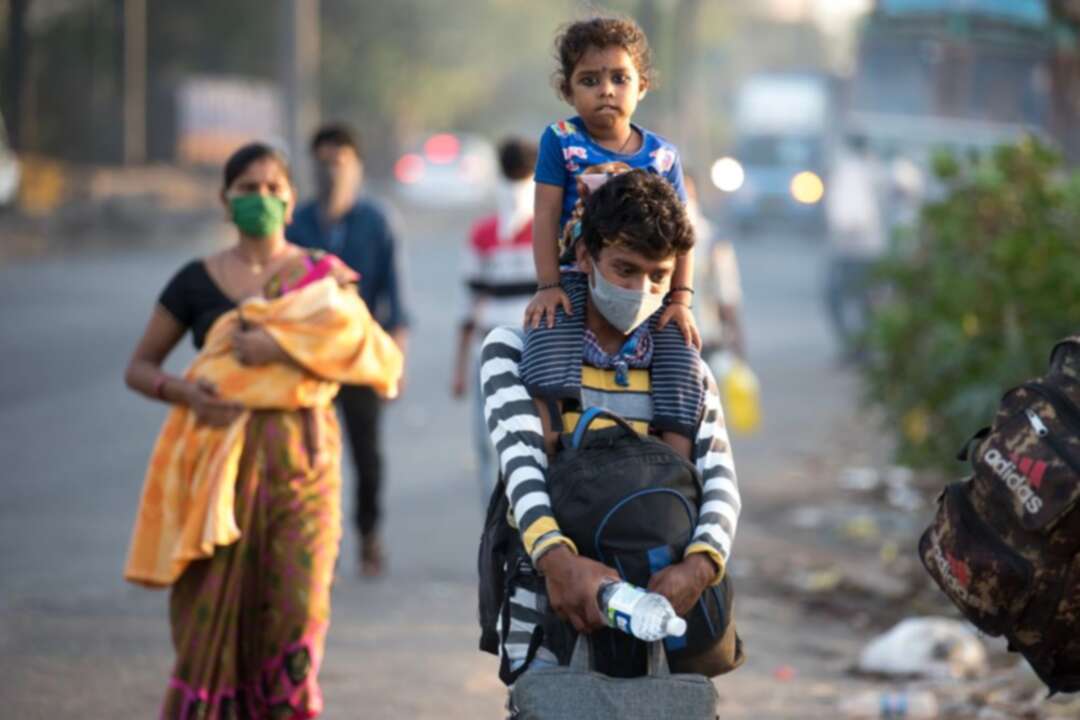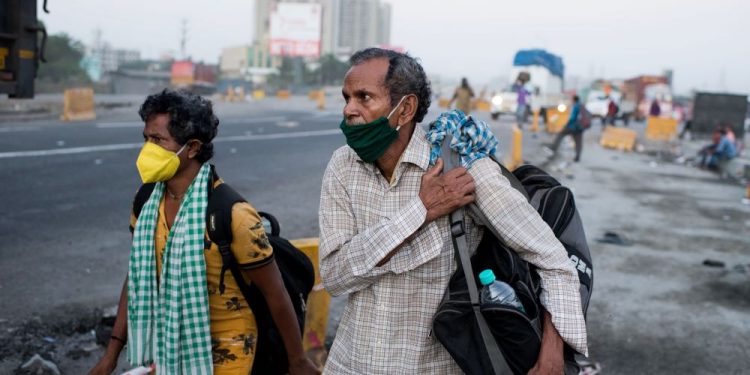-
Air pollution likely to reduce 9 years of life expectancy of 40% of Indians

The Reuters reported, according to a report released by a U.S. research group on Wednesday that air pollution is likely to reduce the life expectancy of about 40% of Indians by more than nine years.
According to the report prepared by the Energy Policy Institute at the University of Chicago (EPIC, more than 480 million people living in the vast swathes of central, eastern and northern India, including the capital, New Delhi, endure significantly high pollution levels.
The EPIC report said: "Alarmingly, India's high levels of air pollution have expanded geographically over time."
The report said, for example, air quality has significantly worsened in the western state of Maharashtra and the central state of Madhya Pradesh.

Lauding India's National Clean Air Program (NCAP), launched in 2019 to rein in dangerous pollution levels, the EPIC report said "achieving and sustaining" the NCAP goals would raise the country's overall life expectancy by 1.7 years and that of New Delhi 3.1 years.
The NCAP aims to reduce pollution in the 102 worst-affected cities by 20%-30% by 2024 by ensuring cuts in industrial emissions and vehicular exhaust, introducing stringent rules for transport fuels and biomass burning and reduce dust pollution. It will also entail better monitoring systems.
Read more: Tunisian farmers turn to past by planting indigenous seeds to resist climate change
New Delhi was the world's most polluted capital for the third straight year in 2020, according to IQAir, a Swiss group that measures air quality levels based on the concentration of lung-damaging airborne particles known as PM2.5.
Last year, New Delhi's 20 million residents, who breathed some of the cleanest air on record in the summer because of coronavirus lockdown curbs, battled toxic air in winter following a sharp increase in farm residue burning in the nearby states of Punjab and Haryana.
According to the EPIC's findings, neighbouring Bangladesh could raise average life expectancy by 5.4 years if the country improves air quality to levels recommended by the World Health Organization.
To arrive at the life expectancy number, EPIC compared the health of people exposed to different levels of long-term air pollution and applied the results to various places in India and elsewhere.
Source: reuters
You May Also Like
Popular Posts
Caricature
BENEFIT Sponsors BuildHer...
- April 23, 2025
BENEFIT, the Kingdom’s innovator and leading company in Fintech and electronic financial transactions service, has sponsored the BuildHer CityHack 2025 Hackathon, a two-day event spearheaded by the College of Engineering and Technology at the Royal University for Women (RUW).
Aimed at secondary school students, the event brought together a distinguished group of academic professionals and technology experts to mentor and inspire young participants.
More than 100 high school students from across the Kingdom of Bahrain took part in the hackathon, which featured an intensive programme of training workshops and hands-on sessions. These activities were tailored to enhance participants’ critical thinking, collaborative problem-solving, and team-building capabilities, while also encouraging the development of practical and sustainable solutions to contemporary challenges using modern technological tools.
BENEFIT’s Chief Executive Mr. Abdulwahed AlJanahi, commented: “Our support for this educational hackathon reflects our long-term strategic vision to nurture the talents of emerging national youth and empower the next generation of accomplished female leaders in technology. By fostering creativity and innovation, we aim to contribute meaningfully to Bahrain’s comprehensive development goals and align with the aspirations outlined in the Kingdom’s Vision 2030—an ambition in which BENEFIT plays a central role.”
Professor Riyadh Yousif Hamzah, President of the Royal University for Women, commented: “This initiative reflects our commitment to advancing women in STEM fields. We're cultivating a generation of creative, solution-driven female leaders who will drive national development. Our partnership with BENEFIT exemplifies the powerful synergy between academia and private sector in supporting educational innovation.”
Hanan Abdulla Hasan, Senior Manager, PR & Communication at BENEFIT, said: “We are honoured to collaborate with RUW in supporting this remarkable technology-focused event. It highlights our commitment to social responsibility, and our ongoing efforts to enhance the digital and innovation capabilities of young Bahraini women and foster their ability to harness technological tools in the service of a smarter, more sustainable future.”
For his part, Dr. Humam ElAgha, Acting Dean of the College of Engineering and Technology at the University, said: “BuildHer CityHack 2025 embodies our hands-on approach to education. By tackling real-world problems through creative thinking and sustainable solutions, we're preparing women to thrive in the knowledge economy – a cornerstone of the University's vision.”
opinion
Report
ads
Newsletter
Subscribe to our mailing list to get the new updates!






















